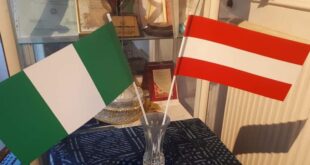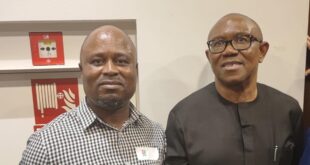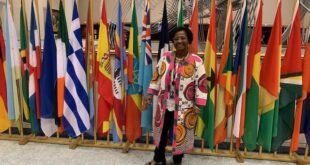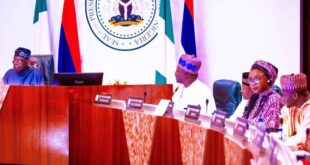Catalan leader Carles Puigdemont, who was fired by the Spanish government over the region’s declaration of independence, has called on the people to non-violently resist Madrid’s takeover bid.
In a televised address on Saturday, Puigdemont said Madrid’s decision to suspend the autonomy of the province and appoint Spanish Deputy Prime Minister Soraya Saenz de Santamaria as Catalonia’s provisional head goes against the will of the people.
“It’s very clear that the best form of defending the gains made up until now is democratic opposition to article 155,” Puigdemont said in a brief statement aired on public regional TV3 broadcaster. He further pledged to “continue working to build a free country”.
The Spanish senate approved Friday afternoon the application of article 155 of the constitution, which allows the government to suspend Catalonia’s autonomy. The vote, by 214 votes against 47 with one abstention, followed the vote in the Catalan parliament of a resolution to declare the region’s independence.
“Exceptional measures should only be adopted when no other remedy is possible,” Spanish Prime Minister Mariano Rajoy told senators on Friday morning.
The measures, which entered into force on Saturday, include the dismissal of Puigdemont and other regional officials, the dissolution of the Catalan parliament to call new elections, and control over the region’s finances and police forces.
On Friday afternoon (before the Spanish senate sat), the Catalan parliament had adopted a resolution that declared the creation of an “independent sovereign, democratic and social state”.
The unilateral declaration of independence was adopted by just over a half of the region’s deputies, as three opposition parties – the centre-right Popular Party and Ciudadanos and the Socialist Party – left the house in protest before the vote.

The European Commission did not react officially but a spokeswoman said that it had “nothing to add” to its usual position saying that the crisis is a Spanish internal issue.
Earlier last week, the EU commission president Jean-Claude Juncker said however that Catalans were “not being oppressed by Spain” and that “nationalism is a poison that prevents Europe from acting together.”
The German government said that it does not recognise Catalonia’s independence, which it says “violates” the principle of sovereignty and territorial integrity. It said that “all existing possibilities for dialogue and de-escalation” should be used.
Rajoy “has my full support,” French president Emmanuel Macron said in French Guyana.
Belgian Prime Minister Charles Michel called on the crisis to be “solved through dialogue.”
In a statement, the US said that “Catalonia is an integral part of Spain” and that it “supports the Spanish government’s constitutional measures to keep Spain strong and united.”
Spanish government spokesman Inigo Mendez de Vigo on Saturday offered the deposed Catalan leader the chance to participate in the vote. “I think he should prepare for next elections,” he told Reuters, saying that if Puigdemont wants to continue with his political career, it is “his right.”
According to Mendez, the Spanish central government will react with “intelligence and with common sense” if Puigdemont refuses to vacate his office. As for possible criminal proceedings against him, de Vigo said that “no one is above the law” and remarked that judicial and political powers were separated in Spain.
Felix Dappah with agency reports
 THE AFRICAN COURIER. Reporting Africa and its Diaspora! The African Courier is an international magazine published in Germany to report on Africa and the Diaspora African experience. The first issue of the bimonthly magazine appeared on the newsstands on 15 February 1998. The African Courier is a communication forum for European-African political, economic and cultural exchanges, and a voice for Africa in Europe.
THE AFRICAN COURIER. Reporting Africa and its Diaspora! The African Courier is an international magazine published in Germany to report on Africa and the Diaspora African experience. The first issue of the bimonthly magazine appeared on the newsstands on 15 February 1998. The African Courier is a communication forum for European-African political, economic and cultural exchanges, and a voice for Africa in Europe.





























